Haircare 101 The Natural Approach to Attaining Stronger, Fuller Hair
Haircare 101 The Natural Approach to Attaining Stronger, Fuller Hair
Are you tired of spending hours and dollars on hair products that promise miracles but fail to deliver? Well, say goodbye to those disappointing days because we have a natural solution for your hair woes! In this blog post, we will unveil the secrets behind achieving stronger and fuller hair using only Mother Nature’s finest ingredients. Get ready to embark on an exciting journey into Haircare 101 as we uncover the natural approach that will transform your locks from lifeless to luscious. Say hello to healthier strands and bid farewell to frizz and breakage – it’s time for your crowning glory to reign supreme!
The Importance of Haircare
1. The Importance of Haircare
Hair is often seen as a reflection of one’s personality and can greatly impact their overall appearance. It is no surprise that so many people invest time and money into haircare products and treatments to achieve luscious, healthy locks. However, with the rise of chemical-laden products and heat styling tools, our hair is constantly exposed to damage which can lead to dullness, breakage, and even hair loss.
This is where the importance of natural haircare comes in. Adopting a natural approach to taking care of your hair not only benefits its physical appearance but also promotes overall health. In this section, we will delve into why investing in proper hair care using natural methods should be an essential part of your beauty routine.
1.1 Maintains Natural Oils
Our scalps produce natural oils that are important for keeping our hair moisturized and nourished. Commercial shampoos often strip away these oils along with dirt and product buildup, leaving our strands dry and prone to breakage. This leads us down a path of constant washing which further aggravates the issue.
Natural haircare remedies such as scalp massages with specific oils like jojoba or coconut oil help stimulate blood circulation while promoting healthy oil production on the scalp. Furthermore, using gentle cleansers or opting for co-washing (conditioner-only washing) helps maintain the balance of moisture on our scalp without stripping away its natural oils.
1.2 Nourishes from Within
Just like any other part of our body, our hair needs proper nutrition to thrive. When we consume a diet rich in vitamins A, C, E, zinc, iron, and biotin – all essential nutrients for healthy hair growth – it reflects in the health of our tresses.
However, it is not always possible to get all these nutrients through food alone; this is where supplements come in handy as they offer targeted nutrition for hair health. Hair supplements containing natural ingredients like biotin, keratin, and collagen can help strengthen our strands from within and promote growth.
1.3 Prevents Damage
One of the biggest concerns with chemically laden hair products is that they can cause long-term damage to our strands. This includes dryness, breakage, split ends and even thinning hair. Heat styling tools such as blow dryers, curling irons, and straighteners further exacerbate this issue by causing heat damage.
Using natural methods such as air-drying or using heat-protectant sprays can greatly reduce the damage caused by styling tools. Additionally, opting for natural haircare products free from harsh chemicals and sulfates can help maintain the health of our tresses in the long run.
Proper hair care is essential to keep your locks strong, healthy, and luscious. By switching to a natural approach you not only benefit your hair but also contribute towards a healthier environment for yourself and those around you. So embrace the power of nature’s remedies and take care of your
Understanding Your Hair Type
When it comes to hair care, understanding your hair type is crucial in creating a personalized and effective routine. Every person’s hair is unique and requires specific care to maintain its strength and fullness. There are four main types of hair: straight, wavy, curly, and coily. Within these categories, there are also varying levels of thickness and texture.
Straight hair tends to be flat, lacking in volume and shine. It can get oily quickly due to the natural oils easily traveling down the strands. Wavy hair has slight bends or S-shaped curls starting from the middle of the strand towards the ends. This type of hair can be prone to frizz and dryness. Curly hair forms more defined ringlets that start at the roots and have a corkscrew-like appearance. It tends to require more moisture as it can often become dry and brittle. Coily hair has tight curls that can range from springy coils to zig-zags or even kinky textures. This type of hair needs lots of moisture as it tends to be drier than other types.
Once you have identified your general hair type, it is essential to determine your characteristics such as density (the number of strands on your head), porosity (your hair’s ability to absorb moisture), elasticity (how easily your strands stretch without breaking), and width (the diameter of each strand). These factors play a significant role in how you should approach caring for your locks.
Density refers not only to how many hairs you have but also to how tightly packed they are on your scalp. If you have thick density, this means that you have more strands per square inch compared to someone with thin density who will have fewer hairs per square inch on their head.
Porosity determines how easily your tresses absorb moisture from products such as oils or conditioners. High porosity means that water can penetrate easily into your locks while low porosity repels water making it challenging to keep your strands moisturized.
Elasticity refers to how well your hair can stretch without breaking. This factor is essential as it helps you determine the appropriate level of manipulation and heat to use on your locks.
The width of your strands determines how vulnerable they are to damage. The thicker the strand, the more resilient it will be against breakage and split ends.
Understanding these characteristics of your hair type helps you determine which products to use, how often to wash and condition, and what styling techniques will work best for maintaining strong and full locks naturally. It is crucial to embrace and cater to your unique hair type to achieve healthy, beautiful tresses.
Common Hair Problems and Causes
1. Common Hair Problems and Causes
Hair plays a significant role in our overall appearance, and having strong, fuller hair is something that many desire. However, with the increasing use of styling products, heat tools, and chemical treatments, our hair can become weak and damaged over time. In this section, we will discuss some of the most common hair problems faced by individuals and their underlying causes.
1.1 Hair Loss or Thinning
Hair loss or thinning is one of the most common hair problems faced by both men and women. It can be caused by various factors such as genetics, hormonal changes, stress, poor nutrition, medication side effects, and age.
Genetics plays a critical role in determining the thickness and quality of our hair. If your family history includes people with thinning hair or baldness, there is a high chance that you may inherit it too.
Hormonal changes also contribute to hair loss in both men and women. Fluctuating hormones during pregnancy or menopause can lead to temporary shedding of hair known as telogen effluvium.
Stress is another significant factor that can cause thinning or shedding of hair. Stress-induced alopecia occurs when there is an increase in cortisol levels (stress hormone), disrupting the regular growth cycle of your hair.
Poor nutrition is often overlooked but has substantial effects on our bodies’ overall health, including our hair. A diet lacking essential nutrients like protein, biotin (vitamin B7), iron, and zinc can lead to weakened strands and eventually cause them to fall out.
Additionally, certain medications have reported side effects of causing temporary or permanent hair loss as well.
1.2 Dryness and Brittle Hair
Dryness leads to brittle hair that breaks easily due to a lack of moisture retention in the strands. This issue could be caused by excessive exposure to heat-styling tools like blow dryers and straighteners or chemical treatments like bleaching and coloring. Constant use of these products can strip the hair of its natural oils, leaving it dry and dull.
Environmental factors like excessive sun exposure, wind, and pollution can also contribute to dryness and brittleness in your hair.
1.3 Dandruff
Dandruff is a common scalp condition caused by the overgrowth of a yeast-like fungus called Malassezia. This fungus feeds on the natural oils on our scalp, leading to excessive shedding of dead skin cells (white flakes) and itching.
Other factors that can cause dandruff include hormonal imbalances, stress, genetics, and certain underlying health conditions like psoriasis or eczema.
Understanding the causes behind common hair problems is crucial in addressing them effectively. In the next section, we will delve into natural remedies for resolving these issues holistically without harming your hair with harsh chemicals.
Natural Haircare Tips for Stronger, Fuller Hair
1. Natural Haircare Tips for Stronger, Fuller Hair
Are you tired of constantly battling with weak and limp hair? Are you looking for a natural approach to achieve stronger and fuller locks? Look no further as we have compiled a list of the best natural haircare tips to help you attain your dream hair.
1. Nourish Your Scalp with Essential Oils
The key to having strong and healthy hair starts at the scalp. Massaging essential oils such as coconut, olive or rosemary oil onto your scalp can stimulate blood flow and nourish your hair follicles, promoting healthier hair growth. These oils also have anti-inflammatory properties that can soothe any irritation on the scalp.
2. Use Natural Shampoo and Conditioner
Traditional shampoos and conditioners often contain harsh chemicals that strip away natural oils from our hair, leaving it dry and weak. Switching to natural alternatives that use ingredients like aloe vera, tea tree oil, or shea butter can help promote stronger and fuller locks while maintaining moisture in your tresses.
3. Incorporate Protein-Rich Foods into Your Diet
Just like our body needs protein to build muscles, our hair also requires protein for strength and growth. Make sure to include foods high in protein such as eggs, fish, nuts, and beans in your diet to nourish your strands from within.
4. Avoid Heat Styling Tools
Constantly using hot tools like blow dryers, flat irons or curling irons can cause damage to our hair by stripping away its natural moisture and causing it to become brittle. Instead of relying on heat styling tools every day, try embracing your natural texture by air-drying or using heatless styling methods like braiding or twisting.
5. Rinse Your Hair with Apple Cider Vinegar
Apple cider vinegar is not only great for adding flavor to dishes but also has many benefits for our hair including balancing the pH levels and removing build-up from hair products. Simply mix one part apple cider vinegar with three parts water and use it as a final rinse after washing your hair for stronger, shinier locks.
6. Use Hair Masks
Treat your hair to some extra love and care by incorporating a weekly or bi-weekly hair mask into your routine. Various natural options can target specific concerns like dryness, frizz, or lack of volume. You can opt for homemade masks using ingredients like avocado, honey, or yogurt, or choose from the many natural options available in the market.
By following these natural haircare tips regularly, you will not only see an improvement in the strength and fullness of your locks but also have healthier and more luscious-looking tresses. Remember to be patient and consistent with these tips as natural remedies often take time to show results. Embracing a holistic approach to haircare can lead to long-lasting benefits for both our hair and overall well-being.
– Proper Nutrition and Hydration
Proper nutrition and hydration are two of the most crucial factors in maintaining strong and healthy hair. The food we eat and the fluids we drink play a significant role in promoting hair growth, preventing breakage, and keeping our scalp nourished.
One of the best ways to achieve stronger, fuller hair naturally is by ensuring that your body receives the necessary nutrients it needs. Essential vitamins and minerals such as iron, biotin, zinc, and vitamins A, C, and E are vital for healthy hair growth. Foods rich in protein like eggs, lean meats, fish, nuts, legumes, and leafy greens should also be incorporated into your daily diet as they provide the building blocks for strong strands of hair.
Moreover, staying hydrated is just as crucial for maintaining healthy tresses. Water makes up about 25% of each strand of hair, making it essential to keep our bodies well-hydrated to ensure that our locks remain moisturized from within. Dehydration can lead to dryness and brittleness in the hair shafts which can cause breakage over time.
In addition to water intake through drinking at least eight glasses a day, there are several ways you can incorporate extra hydration into your daily routine through external means. One natural method is massaging your scalp with oils like coconut oil or almond oil before showering as this will help lock in moisture. Another way is by using water-based leave-in conditioners or using a deep conditioning treatment once a week to replenish lost moisture.
It’s also essential to limit or avoid excessive consumption of alcohol or caffeinated drinks as they can zap moisture from both our bodies and hair strands.
Aside from providing proper nutrition and hydration through diet and hydration methods mentioned above; certain natural supplements may help promote healthier hair growth. Biotin tablets have gained popularity as an effective supplement in strengthening nails along with promoting thicker locks- make sure always consult with your physician before incorporating any new supplements.
Proper nutrition and hydration are key to maintaining strong and healthy hair. By following a well-balanced diet, drinking enough water, and using natural methods of hydration, you can significantly improve the strength and appearance of your locks. And remember to always consult with a healthcare professional for personalized advice on your specific nutritional needs.
– Scalp Care Routine
1. – Scalp Care Routine:
The scalp is the foundation of healthy hair and it is essential to establish a proper scalp care routine to achieve strong, fuller locks. Neglecting the health of your scalp can lead to various problems such as dandruff, itching, irritation, and even hair loss. By dedicating some time and effort to caring for your scalp, you can promote hair growth and improve the overall health of your tresses.
Here are some natural steps you can incorporate into your regular haircare routine for a healthy scalp:
1. Cleansing:
Just like we cleanse our face every day, our scalp also requires regular cleansing to remove any dirt, oil, or product buildup that may clog hair follicles. Choose gentle yet effective cleansers that are specifically designed for the scalp as they will not strip away its natural oils. Look for ingredients like tea tree oil or peppermint that have anti-inflammatory properties and help maintain a clean and balanced scalp.
2. Exfoliating:
Exfoliation is an important step in maintaining a healthy scalp as it helps remove dead skin cells, unclog pores, and stimulate blood circulation which promotes hair growth. You can use a store-bought exfoliating scrub once or twice a week, or create your exfoliator using natural ingredients such as brown sugar or sea salt mixed with olive oil.
3. Nourishing:
For our scalps to function properly, they need adequate nourishment just like the rest of our body does. Incorporate nutrient-rich products into your routine such as coconut oil, castor oil or rosemary essential oil which improves circulation and stimulates hair growth.
4. Massaging:
Massaging the scalp has numerous benefits including increasing blood flow to the area which brings essential nutrients to the follicles resulting in healthier hair growth. It also loosens any buildup on the scalp allowing for better absorption of nourishing products. Use your fingers to gently massage your scalp in circular motions for a few minutes before or during hair washes.
5. Protecting:
It is important to protect your scalp from harsh environmental factors such as pollution, UV rays, and cold weather. Wearing hats or using a protective hair serum can shield your scalp from these damaging elements.
Incorporating these simple steps into your routine will not only help maintain a healthy scalp but also promote stronger, fuller hair. Remember that maintaining consistency with these practices is key to achieving desired results.
– Essential Oils for Hair Health
1. Essential Oils for Hair Health
Essential oils have been used for centuries to promote hair health and improve its overall appearance. These highly concentrated plant extracts are known for their numerous benefits, including stimulating hair growth, strengthening follicles, and providing nourishment to the scalp. Here are some of the essential oils that you can incorporate into your haircare routine to achieve stronger and fuller hair.
1.1 Lavender Oil
One of the most popular essential oils for hair health is lavender oil. It has calming properties that can help reduce stress levels, which in turn can prevent hair loss caused by hormonal imbalances. Lavender oil also has antimicrobial properties that can help soothe an itchy or inflamed scalp, promoting a healthy environment for hair growth.
1.2 Rosemary Oil
Rosemary oil is another essential oil that has been traditionally used to stimulate hair growth and prevent thinning. It helps increase blood circulation in the scalp, delivering important nutrients and oxygen to the hair follicles, resulting in stronger and healthier strands.
1.3 Peppermint Oil
Peppermint oil contains menthol, which has a cooling effect on the scalp when applied topically. This not only feels refreshing but also increases blood flow to the area, promoting efficient nutrient delivery to the follicles. Additionally, peppermint oil has antioxidant properties that help protect against damage from free radicals.
1.4 Tea Tree Oil
Tea tree oil is well-known for its antibacterial and antifungal properties that can help combat dandruff and other scalp conditions like psoriasis or eczema. Keeping your scalp clean and free from these issues is essential for maintaining healthy hair growth.
1.5 Cedarwood Oil
Cedarwood oil has astringent properties that can regulate sebum production on the scalp, making it beneficial for those with oily or greasy hair types. Excess sebum can clog pores and inhibit healthy hair growth, making cedarwood oil a useful addition to any haircare routine.
1.6 Geranium Oil
Geranium oil is a versatile essential oil that can balance both dry and oily scalps, making it suitable for all hair types. It also has anti-inflammatory properties that can soothe irritation and promote a healthy scalp environment.
Incorporating these essential oils into your haircare routine can provide an array of benefits for your hair’s health. Remember to always dilute them with a carrier oil, such as coconut or jojoba, before applying them to the scalp. Additionally, do a patch test first to ensure you are not allergic to any of the oils. With regular use, you will notice stronger, fuller, and more vibrant locks that are nourished from root to tip.
– DIY Natural Hair Masks and Treatments
1. DIY Natural Hair Masks and Treatments
When it comes to hair care, many of us are always on the lookout for products that promise stronger and fuller hair. However, these commercial products often contain harsh chemicals that can end up causing more harm than good in the long run. The good news is that there are plenty of natural remedies and ingredients that can nourish and strengthen your hair without any harmful side effects. In this section, we will explore some easy-to-make DIY natural hair masks and treatments that will leave your locks looking their best.
1.1 Banana and Honey Hair Mask
Both banana and honey are known for their moisturizing properties, making them a perfect combination for dry or damaged hair. To create this mask, mash one ripe banana in a bowl until there are no lumps left. Then mix in two tablespoons of raw honey until well combined. Apply the mixture evenly onto damp hair, from roots to ends, and leave it on for 30 minutes before rinsing off with lukewarm water.
The potassium in bananas helps soften the hair while vitamins A, C, and E work to repair any damage. Honey also has humectant properties that lock moisture into the strands, leaving your hair feeling silky smooth.
1.2 Avocado and Egg Hair Treatment
Avocados are not just delicious; they are also packed with vitamins B5 and E, both of which contribute to healthy hair growth. Eggs are rich in biotin which strengthens the hair follicles while also providing protein to repair any damage caused by heat or chemical treatments.
To make this treatment at home, mash half an avocado until it is smooth before adding one beaten egg to it. Apply it generously on damp hair starting from the ends up to the scalp. Leave it on for 20-30 minutes before rinsing off with cold water followed by a mild shampoo.
1.3 Coconut Oil Scalp Massage
One of the best ways to achieve fuller and healthier hair is by taking care of your scalp. Coconut oil is an excellent natural remedy for dry or flaky scalps as it is easily absorbed and contains potent moisturizing properties.
To give your scalp a nourishing massage, heat two tablespoons of coconut oil until it is warm but not hot to the touch. Using your fingertips, gently massage the oil into your scalp in circular motions for 5-10 minutes. Leave it on for an additional 30 minutes before washing off with a mild shampoo.
By incorporating these DIY natural hair masks and treatments into your haircare routine, you can give your hair much-needed love and attention without any harsh chemicals or expensive products. So why wait? Give them a try and see the difference they can make to your locks!
Avoiding Harmful Chemicals and Ingredients in Hair Products
In recent years, there has been a growing concern over the harmful chemicals and ingredients present in hair products. While these products may promise to give us stronger and fuller hair, they can also cause long-term damage to our locks and overall health. Let’s dive into some of the common chemicals and ingredients that we should avoid when choosing hair care products.
1. Sulfates – Sulfates are commonly found in shampoos as they help create a lather that cleanses our hair. However, sulfates can strip our hair of its natural oils, leaving it dry and prone to breakage. Look for shampoos labeled as “sulfate-free” or opt for more gentle alternatives like Cocamidopropyl betaine or decyl glucoside.
2. Parabens – These preservatives are used to extend the shelf life of hair products but have been linked to hormone disruption and even cancer. To steer clear of parabens, choose products that are labeled as “paraben-free” or use natural preservatives such as grapefruit seed extract or rosemary oil.
3. Silicones – Frequently used in conditioners and styling products, silicones work by creating a coating on the hair shaft which gives the illusion of smoothness and shine. However, this buildup can weigh down your hair over time leading to limp locks. Opt for silicone-free options or look for water-soluble silicones like dimethicone copolyol which can be easily washed away.
4. Formaldehyde – This chemical is often found in straightening treatments such as keratin treatments or Brazilian blowouts. It is known to be a human carcinogen which means it has the potential to cause cancer with long-term exposure. Instead of chemically altering your hair with formaldehyde-based treatments, try using natural methods like aloe vera gel or coconut milk masks for smoother strands.
5. Synthetic Fragrances – Many hair products contain synthetic fragrances to make them smell pleasant. However, these fragrances can cause irritation and allergies for some people. Look for fragrance-free or naturally scented options such as essential oils.
By avoiding these harmful chemicals and ingredients in our hair products, we not only protect our hair from damage but also prioritize our overall health. Make sure to read the ingredient labels carefully and opt for natural, gentler alternatives whenever possible to achieve strong and healthy tresses.
Incorporating Ayurvedic Practices into Your Haircare Routine
Incorporating Ayurvedic practices into your haircare routine can have numerous benefits for the health and strength of your hair. Ayurveda is an ancient traditional medicine system from India that emphasizes natural healing methods based on the individual’s mind, body, and soul. When applied to hair care, it focuses on promoting natural growth and maintaining the overall health of your hair.
One of the key principles in Ayurveda for healthy hair is maintaining balance within the body. This includes a balance between doshas (energies), proper nutrition, and a stress-free lifestyle. When these elements are in harmony, your hair will be healthier and stronger.
To begin incorporating Ayurvedic practices into your haircare routine, it is important to understand your dosha type. The three doshas – Vata, Pitta, and Kapha – represent different energy types within our bodies and have unique characteristics when it comes to our physical attributes. Knowing which dosha you predominantly fall under can help determine what type of products or ingredients will work best for you.
For example, those with a Vata-dominant dosha tend to have dry and frizzy hair that requires extra moisture. They should opt for nourishing oils like coconut or almond oil when massaging their scalp or as a pre-shampoo treatment. On the other hand, individuals with a Pitta-dominant dosha often have fine-textured hair that can become easily damaged from excessive heat styling or chemical treatments. They should choose cooling oils such as Brahmi or Amla oil to keep their scalp hydrated and stimulate blood flow.
Apart from using specific oils based on dosha type, other Ayurvedic ingredients can be beneficial for all hair types. These include Bhringraj (Eclipta prostrate), known for its ability to promote thick and shiny hair; Shikakai (Acacia concinna), which acts as a natural cleanser and detangler; and Aloe Vera, known for its soothing properties for the scalp.
In addition to using Ayurvedic products and ingredients, incorporating certain practices into your haircare routine can also help improve the overall health of your hair. These include massaging your scalp regularly with warm oil to promote blood circulation and nourishment, practicing meditation or yoga to reduce stress levels that can lead to hair fall, and adopting a healthy diet rich in vitamins and minerals essential for hair growth.
Incorporating Ayurvedic practices into your haircare routine not only provides physical benefits but also promotes self-care and mindfulness. So go ahead, and embrace the holistic approach of Ayurveda towards achieving stronger, fuller hair naturally.
– Benefits of Ayurveda
1. – Benefits of Ayurveda
Ayurveda, which means “knowledge of life” in Sanskrit, is an ancient Indian medical system that has been used for over 5,000 years. It is based on the belief that our bodies are composed of three doshas or energies – Vata (air), Pitta (fire), and Kapha (earth). When these doshas are balanced, we experience good health and well-being. However, imbalances in these energies can lead to various health issues, including hair problems.
In the past few decades, Ayurvedic practices have gained popularity in the Western world as a natural approach to overall health and wellness. When it comes to haircare specifically, Ayurveda offers numerous benefits that promote strong, healthy, and lustrous locks without the use of harsh chemicals or synthetic ingredients.
1.1 Nourishes Hair from Within
According to Ayurvedic principles, healthy hair starts from within. This means that what we eat plays a significant role in the health of our hair. A diet rich in nutrients and minerals not only promotes overall well-being but also nourishes your scalp and hair follicles from within. This prevents issues like dandruff, dryness and breakage.
1.2 Uses Natural Ingredients
One of the key benefits of Ayurvedic haircare is its focus on using natural ingredients derived from plants and herbs such as neem, brahmi, amla and bhringraj. These ingredients are packed with essential vitamins and minerals that help stimulate hair growth while nourishing the scalp.
1.3 Promotes Scalp Health
According to Ayurveda, a healthy scalp is crucial for maintaining strong and healthy hair. Massaging your scalp with herbal oils helps improve blood circulation which delivers vital nutrients to your hair follicles. The oils also have anti-inflammatory properties that soothe irritation or inflammation on the scalp, preventing conditions like dandruff and eczema.
1.4 Reduces Hair Fall and Breakage
The combination of natural ingredients and scalp massage can significantly reduce hair fall and breakage. Ayurvedic hair oils are enriched with nutrients that strengthen the hair follicles, making them less prone to breaking. Massaging the scalp also helps in loosening any build-up or blockages on the scalp, promoting healthy hair growth.
1.5 Addresses Specific Hair Concerns
Ayurveda offers targeted solutions for specific hair concerns such as dryness, dandruff, thinning or greying hair. For instance, neem oil is highly beneficial for treating dandruff while amla oil is known for its anti-aging properties that prevent premature greying of hair.
Incorporating Ayurvedic practices into your haircare routine can offer numerous benefits for strong, healthy, and beautiful locks without the use of harsh chemicals. Its focus on holistic wellness ensures not only external beauty but overall vitality as well.
Don’t forget to give us a follow on Facebook!

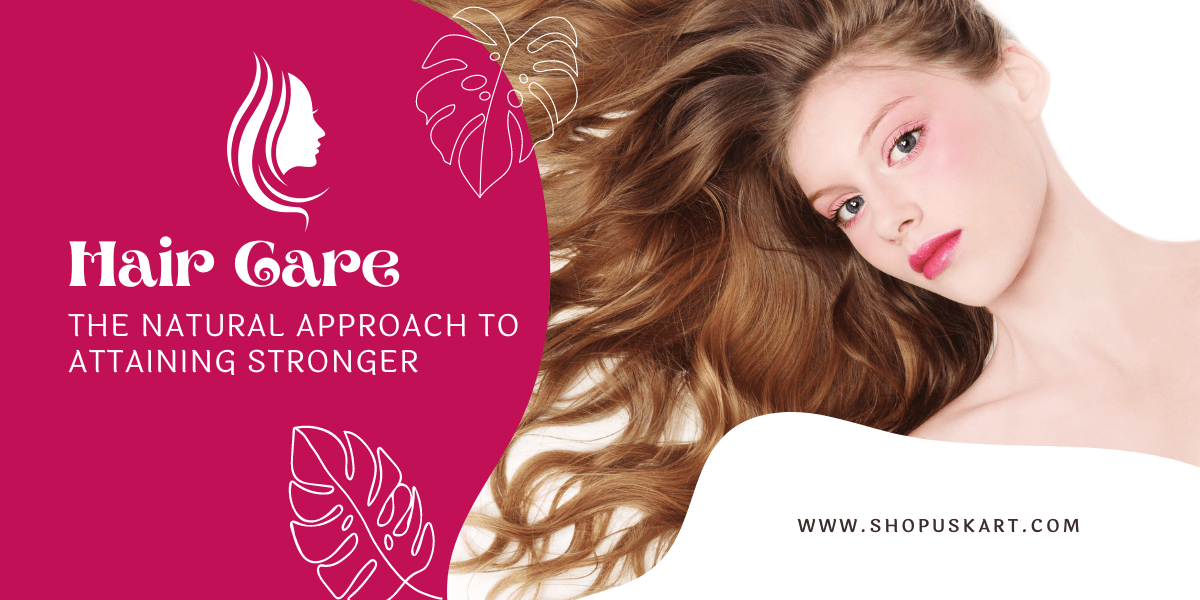

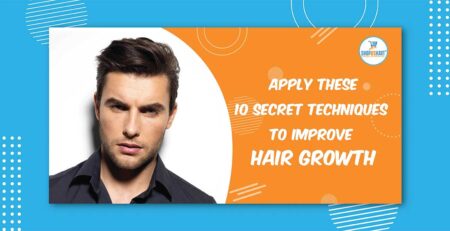

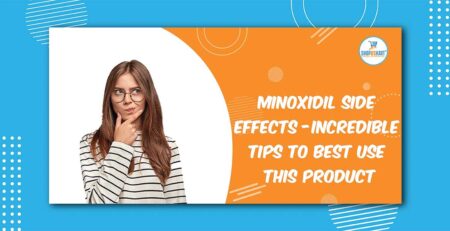
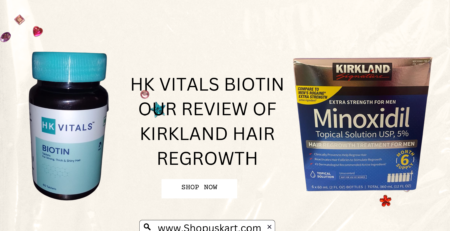
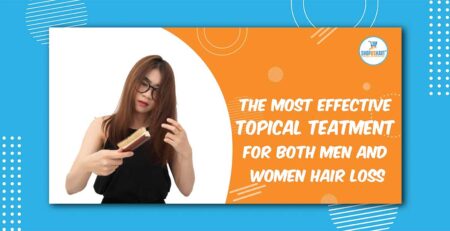
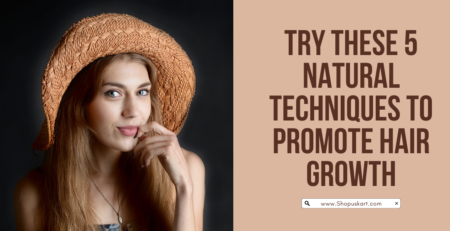
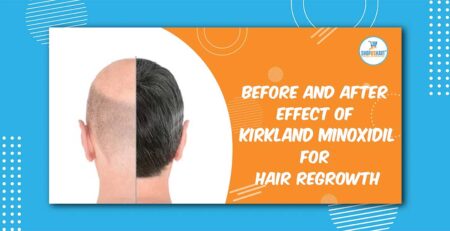
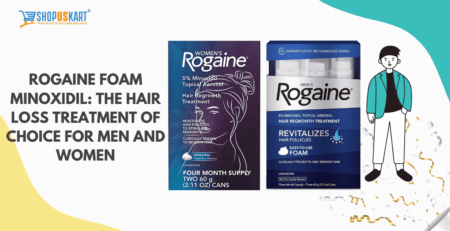
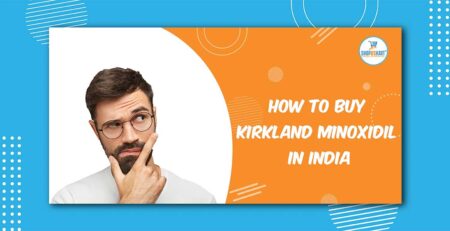
Leave a Reply